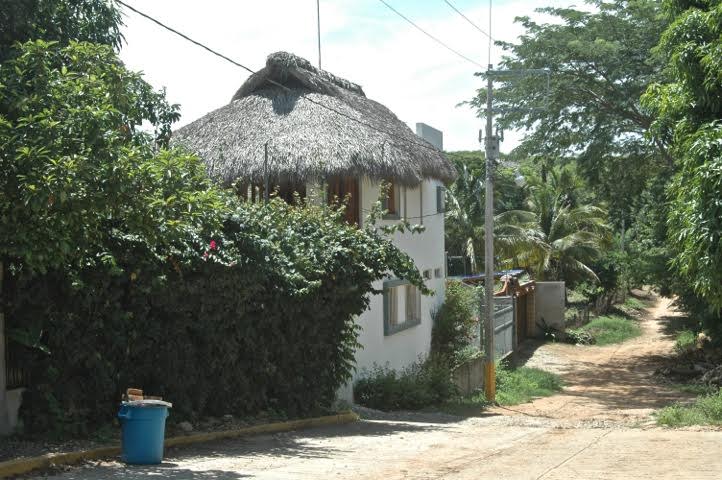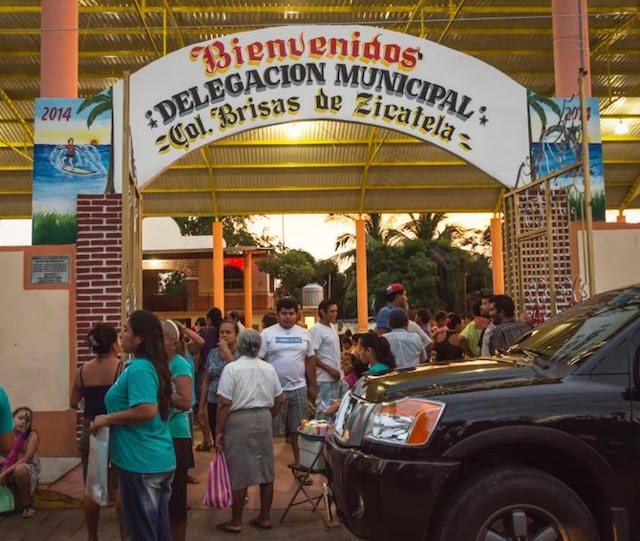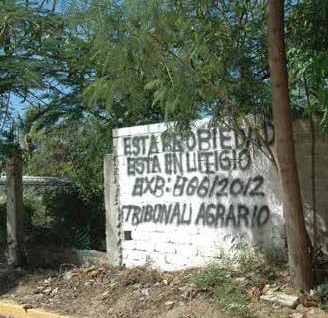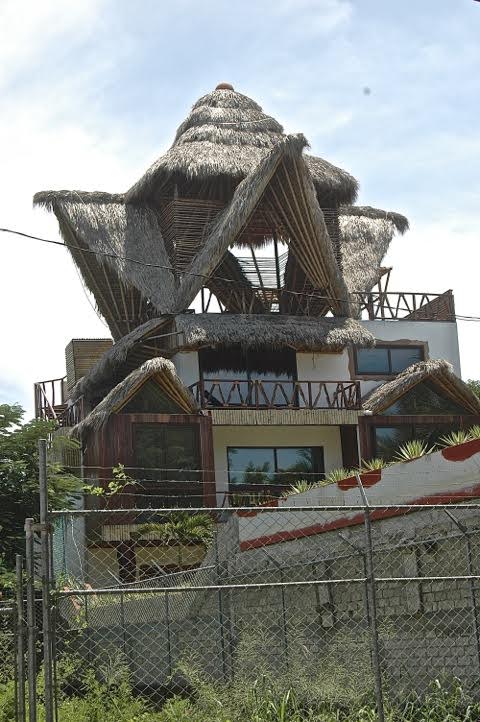
Buying Land in the Punta
All land in the Punta, is communal (i.e. not private) and belongs to the Bienes Comunales of Santa Maria Colotepec. This means that all land transfers (there are no “sales” per se) are registered with the Bienes Comunales which issues the acta de posesión establishing a person’s right to use and transfer a property. The acta is similar to a deed or title (escritura pública) except that the property is not registered at the federal land office in Pochutla as private property would be.
Article 27 of the Mexican Constitution prohibits foreigners from owning property within 50 kms. of the coast, but foreigners may possess property in the restricted zone through a bank trust (fideicomiso), as long as it is titled property. In other words, a foreigner cannot get a fideicomiso on communal land, and an acta de posesión cannot be in a foreigner’s name.
It is also totally illegal to attempt to circumvent the constitution by buying property in the restricted zone by putting it in the name of a Mexican national. A prestanombre (name lender) is someone who, usually for a fee, will help a person circumvent the law. (Think of the bum in front of a liquor store who will, for a few dollars, buy liquor for a teenager, and you have a picture of the legal status of the prestanombre and his client.) For that reason a private (not registered) escritura is also not an option since it is unenforceable. (You can’t present a contract for an illegal transaction to a judge.)
However, there is no law that says a Mexican can’t get an acta de posesión and then rent the property to a foreigner. Let’s say that you, as a foreigner, have a dear Mexican friend or relative who is willing to let you buy a property in his name. You build a house and everything is fine, until your friend unexpectedly dies and his heirs now own your house. Yes, it may happen that the widow or the children claim your property and there is nothing you can do about it. Same goes with a divorce if the couple was married under the joint property law. Conversely, there is no way for you to pass the property onto your non-Mexican heirs.
Furthermore, there was a time when unscrupulous people connected to the Bienes Comunales of Colotepec were free and easy with the issuing of actas. Record keeping was also sloppy. People now are still living with the consequences of there being two or more actas for a single property. The Agrarian court in Oaxaca is the final arbiter of these disputes.
Still, most foreigners on the Oaxaca coast, outside of Huatulco and the area of Puerto that was privatized by a presidential act in 1970 (Bacocho, Carrizalillo, the Lighthouse District, etc.), have a prestanombre.
So what are the alternatives? Legally, there is only one and that is to form a Mexican corporation. It only takes two people to form a corporation and they can both be non-resident foreigners. A Mexican corporation has all the rights of a Mexican national. The catch is that the corporation must be lucrative, and it must be administered by a Mexican, who is responsible for seeing that the taxes are paid. Now your house is a bed and breakfast, and you and your guests pay rent to the corporation. The yearly fees can be costly, but do you really want to build a $200,000 house on someone else’s property?
A third and increasingly popular option is to get an escritura pública issued for your property from the land registry for the district of Pochutla, then get a fideicomiso for this escritura, and finally an acta in your name and the name of the bank. Is it legal? Who knows. It seems to work and is the practice in the condo communities down the Coast. Although this title is useless for purposes of establishing your ownership of the property (only the acta counts), it makes your property easier to sell or inherit (your heir is named on the fideicomiso). The downside is that the paperwork will cost you thousands of dollars, and you will have to pay property taxes to the municipio of Colotepec as well as the tequio. When you sell titled property you also have to pay a transfer tax plus capital gains. But remember, buying a property without getting the acta is like buying a car without getting the ownership papers.
THE TEQUIO AND THE CERTIFICATE OF NO DEBTS
The Bienes Comunales and the Delegations are responsible for the maintenance of the roads, cleaning the beaches, clearing vacant lots and a variety of tasks. However, since the land legally belongs to the community, no property taxes can be collected to pay for these services. In lieu of taxes, property owners are required to contribute their labor a certain number of days a year on community projects. This work is called the tequio.The tequios are voted on by an assembly made up of all residents of a delegation be they Mexican citizens or not. The number of tequios can vary widely from year to year and from delegation to delegation. If you cannot do the tequio you may pay someone to do it for you or you can pay a fine. The amount of the fine also varies widely.
The tequio system, which goes back to pre Hispanic times, works well in small, agricultural communities, but not so well where lots are held by investors and where people build vacation homes. Beyond that, record keeping can be a problem.
If you do not perform the tequios or pay the fines, you cannot transfer your property or get a building permit. Before a new acta can be issued, the seller has to present the constancia de no adeudo (the certificate of no debt) from the Delegation. Since the tequios and fines vary from year to year, it may be that the amount you owe depends on how good you are at bargaining. Thus, it is strongly recommended that you get a constancia every year from your delegation.
A constancia for the year 2015 in Brisas de Zicatela (the Punta) costs $2,000 pesos for a property where the owner has not performed any of the tequios. Besides the tequio, you are also expected to make cash contributions for the local fiesta and other celebrations, like Mother’s Day.














